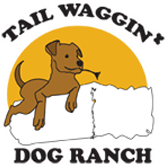Socialization is important for puppies, but it’s also important that it be done early on before it becomes more difficult. After your pup hits about 16 weeks of age, socialization isn’t as effective and won’t have the same results. To help you on your socialization journey, we’ve compiled 5 tips on how to safely socialize your new pup and ensure you get the most out of the small window of opportunity.
1. Avoid Dog Parks
Dog parks can be intimidating places for new pups. There’s lots of bigger dogs running around and you can’t be sure on their temperament or training. It’s best to avoid dog parks until your dog is older, socialized and fully trained.
2. Host a Puppy Play Date
Instead of hitting the dog park, try hosting a puppy play date at home. Call a friend with a puppy or an adult dog that is trained and socialized and arrange a play date at your home or theirs. This ensures your pup has a safe environment for socialization.
3. Attend a Puppy Class
Puppy classes are everywhere, but they aren’t always created equal. You should try to find a class that has 6-7 pups at most and has dogs separated by age and size. Play time should be monitored closely by the trainer to ensure there’s no overly rough play occuring.
4. Let Them Explore on Their Terms
Sometimes we push pups faster than they’re ready to go and it can have a negative impact. If you have a shy or nervous puppy, don’t put them into situations that make them uncomfortable just to try to socialize them. You will have far greater success when you utilize more frequent, small-scale interactions where your pup has the option to hide or watch from a distance until they’re comfortable. When puppies have the ability to control their interactions at their own pace, they often grow more confident and curious about their surroundings.
5. Know When to Seek Professional Guidance
If your puppy is overly aggressive or overly fearful, it’s important to get professional help as soon as possible. Some behaviours to look for include barking at or hiding from strangers, growling, guarding toys or food. In these situations, professional training is highly recommended to help your pup become more comfortable with their surroundings and become more open to the world around them. When in doubt, we offer training programs for puppies and adult dogs of all ages and sizes.

